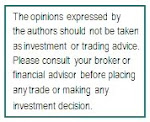 In hindsight, will this period in history become known as “the decade of greed”? It will likely be known as the decade when corporate America and Wall St demonstrated the worst of capitalism. We still have scar tissue from the downfall of corporate giants like Enron - being the first of the titans to implode in 2001, followed by WorldCom in 2002. There were countless others to follow suit. In fact, there were over 430 securities fraud cases in 2000 and 500 such cases in 2002. Just when the ills of capitalism was beginning to fade from the public psyche, the financial crisis ripped through the economy like a tornado. Bear Stearns’ near collapse, and the Lehman Brothers meltdown were monumental events that represented a serious underlying problem in the system. We all know what eventually transpired, amounting to historic losses, a disastrous housing market and a broken economy. Although Wall Street fraud cases dropped 87 percent by 2008, the cloud of distrust remains thick. Quite frankly, a drastic drop in securities fraud cases may simply mean reduced effort to investigate financial firms, as in the case with ponzi King, Bernie Madoff and Allen Sanford. Public perception is unfavorable to say the least. Numerous ponzi schemes have come out of the woodwork since Madoff, only to further taint the image of the financial industry.
In hindsight, will this period in history become known as “the decade of greed”? It will likely be known as the decade when corporate America and Wall St demonstrated the worst of capitalism. We still have scar tissue from the downfall of corporate giants like Enron - being the first of the titans to implode in 2001, followed by WorldCom in 2002. There were countless others to follow suit. In fact, there were over 430 securities fraud cases in 2000 and 500 such cases in 2002. Just when the ills of capitalism was beginning to fade from the public psyche, the financial crisis ripped through the economy like a tornado. Bear Stearns’ near collapse, and the Lehman Brothers meltdown were monumental events that represented a serious underlying problem in the system. We all know what eventually transpired, amounting to historic losses, a disastrous housing market and a broken economy. Although Wall Street fraud cases dropped 87 percent by 2008, the cloud of distrust remains thick. Quite frankly, a drastic drop in securities fraud cases may simply mean reduced effort to investigate financial firms, as in the case with ponzi King, Bernie Madoff and Allen Sanford. Public perception is unfavorable to say the least. Numerous ponzi schemes have come out of the woodwork since Madoff, only to further taint the image of the financial industry. The fall out of deregulation and securities fraud, sparked a call for Wall Street reform and tougher regulations from the White House and Capital Hill. The trouble is, the members of the sub-committee responsible for writing new legislation for Wall Street don’t seem to have strong enough knowledge of the inner workings of sales and trading. This was painfully apparent as I watched the senators grill Goldman’s CEO, Lloyd Blankfein. Anyone working as a trader, analyst, fund manager, or even sales clerk knows that detailed information and credit ratings for securities are fully disclosed in the official statements, but this point seems to have escaped the senators interogating the Goldman CEO.
The fall out of deregulation and securities fraud, sparked a call for Wall Street reform and tougher regulations from the White House and Capital Hill. The trouble is, the members of the sub-committee responsible for writing new legislation for Wall Street don’t seem to have strong enough knowledge of the inner workings of sales and trading. This was painfully apparent as I watched the senators grill Goldman’s CEO, Lloyd Blankfein. Anyone working as a trader, analyst, fund manager, or even sales clerk knows that detailed information and credit ratings for securities are fully disclosed in the official statements, but this point seems to have escaped the senators interogating the Goldman CEO.There’s a negative perception of Wall Street and an overall feeling of distrust on Main Street. This is certainly justified, given a decade of seemingly endless instances of fraud and deception. I can only imagine how this period will be perceived in the history books in years to come. Hopefully, the national and global lessons derived from the past 10 years will serve to keep us from repeating our mistakes. With the swift actions of the White House and the Treasury Secretary, the Country managed to avert the worst case scenario - and we are actually starting to see an economic turnaround. We may not be so lucky the next time around.
For details on the Goldman Sachs probe click Here
K. Reilly
Cohn-Reilly Report






















